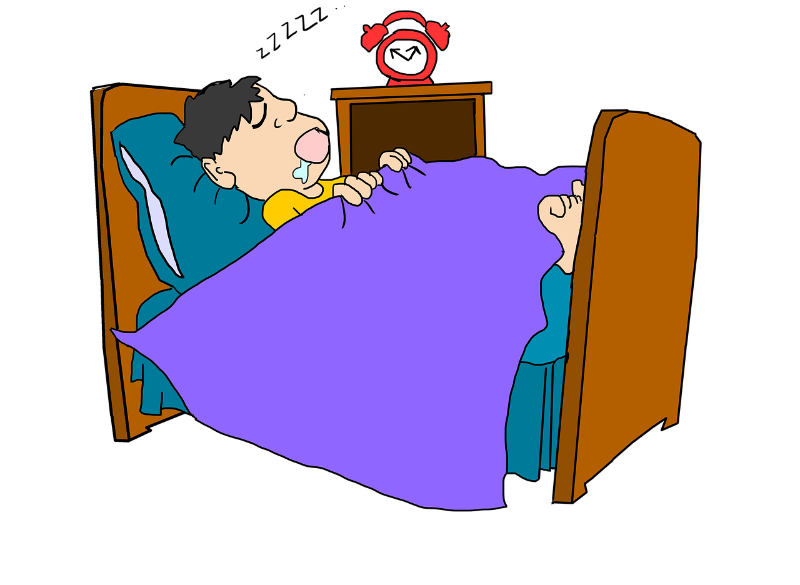Bed stores offer plenty of comfortable mattresses and cushy sheets to keep you comfortable and warm while you drift into a peaceful slumber. Unfortunately, not many businesses offer solutions for snoring, which proves to be a much more serious issue than you realize. About 40 percent of people over the age of 40 snore, and snoring has ruined more than a handful of relationships. Let’s take a closer look at snoring and some potential solutions.
 Source: Pixabay
Source: PixabayGetting in on the Ground Snore
Snoring is the sound that comes from any structures in your upper airway vibrating against each other, usually on the inhale. There’s a lot of stuff in your mouth and the back of your throat—your tongue, uvula, soft palate, pharyngeal walls, tonsillar pillars—that can potentially vibrate.
So why don’t you snore when you’re awake? There are a lot of things that happen during sleep beyond your dreaming and drooling. During sleep, your body produces chemicals that paralyze your muscles. Sounds scary, but it’s necessary. Without those paralyzing chemicals, you would end up sleepwalking or potentially acting out what’s happening in your dreams, which is a real thing known as REM behavior disorder.
Medical Supplies and Equipment
As the muscles in your upper airway relax, they constrict the size of the airway space. It would be like turning a wide pipe into a small garden hose. This turbulence and a limited airflow cause the various parts of your mouth to vibrate.
Going Snore to Snore
If everyone’s muscles relax during sleep, why doesn’t everyone snore? Some common causes of snoring include:
-
Breathing problems: If you’re experiencing any sort of congestion, whether it’s from a cold or allergies, you’re more likely to snore. Congestion often blocks or swells the nasal passages, forcing you to breathe through your mouth instead of your nose, increasing the chances of snoring up a storm.
-
Sleeping on your back: Although it’s the most common sleeping position, lying on your back causes gravity flattens your airway and pulls your mouth open, forcing shallow breathing from your mouth.
-
Deviated septum: An estimated 2.2 million people in the U.S. suffer from a deviated septum. The nasal septum is what divides the nasal passage into two halves. When it deviates, the septum blocks one of the nasal passages, which makes breathing through your nose much more difficult.
-
Alcohol: It’s no surprise that alcohol loosens your tongue and relaxes your inhibitions, but it also relaxes the muscles in and around your throat. This increases the pliability of throat tissues, narrowing your airway and promoting more vibrating as the air passes through.
Products to Stop Snoring
There is a wide range of products that purport to cure snoring. The web offers a product for almost anything. The cure depends on the person and the cause. Nasal strips hold your nasal passages open, allowing for clear nose breathing when you’re congested. Nasal sprays attempt to do the same, while throat sprays work under the assumption that snoring is partly caused by a dry throat.
For some, the solution may be as simple as sleeping on your side or refraining from drinking too much alcohol before bed. If you’re suffering from severe snoring and have tried everything else, you should contact your doctor for a more long-term solution.
